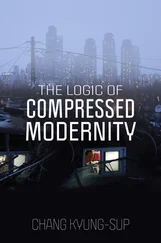She said: “You could stay in this place for a while. You could live here for a long time with the money you have. Maybe you’d even find someone. Someone who would take care of you.”
“I wouldn’t want that.”
“Why not? Every person needs the love of a good woman. Don’t you think that’s true?”
Of course he didn’t dispute her. How could he? Think of a world in which we all had such succor. The problem was that succor bore the sentence of frailty, infirmity. It expired too soon. And then what were you? Lost. Bewildered. A sack of broken things. It was cruel, and he meant it to be, but he asked her, “I wonder if you would have taken care of me. If I was the one who was sick.”
She looked at him unwaveringly. “I don’t think so,” she said. “I’ve never taken care of anyone.”
She took another spoonful of ice, but that was all. In the warmth of the breeze, the rest quickly melted in the bowl. The clouds were tinting amber and red with the falling light. This long day would soon be at its end. She rested the basket on the arm of the chair and tried to get up. He helped her to her feet. He asked if she wanted to change now into the special clothes.
“I want to bathe first. All of a sudden I feel very cold. Would you fill the tub for me? I tried to do it myself while you were out but it was too hard to bend down. And the hot tap seemed stuck. Do you mind?”
“No.”
“Don’t be afraid to make it hot, all right?”
He drew the bath for her, as hot as he thought she could bear. As the tub filled, he wondered if once she got in she would come out again-alive, that is. All this ferocious will and effort and now she might not make it up the hill. What did she think she was going to encounter? What does the pilgrim hope for at journey’s end? Her beliefs confirmed? Revelation? Or does she secretly wish that the destination never quite materializes, that it keeps receding, ever shrouded in the distance, all the more to feed an inextinguishable devotion.
June came into the bathroom and without shame took off her clothes. It was as if he weren’t there. She had trouble twisting her arm out of her blouse, and so he helped her with that. Her belly was distended but it appeared full and vital compared to the rest of her, her drawn shoulders and limbs, the blades of her hips. He turned off the water and dipped his hand in the tub but before he could warn her she had already put one foot in. She sharply inhaled, wincing, but she gripped the side of the tub and eased herself down into the water. He rose to leave but she grabbed his hand and wouldn’t let go as she rested back against the tiled wall. She wasn’t going to take a last chance. Her eyes were shut and they didn’t speak for a long while and when her hand relaxed he was afraid she was gone. But the bathwater welled and sloshed over the edge and she was suddenly on her feet, wrapping herself in one of the towels from the rack. The hot water had pulled up a color in her legs. Yet her expression was sallow; she was only cheekbones and eyes, as though the flesh had melted away into the bathwater, and she said, “Please, Hector. Let’s be quick now.”
He sat her up on the bed as he helped her with the clothes, gently manipulating her limbs as if he were dressing a life-sized doll. The outfit consisted of very loose pajama-style pants and both a blouse and a vest, all made of the same coarse white linen. The shape of the papery clothing took on a boxy, formal allure, the whiteness making her look like a strange kind of bride; showing through the diaphanous fabric were the dark nipples of her breasts, the patch of hair between her legs, these final notations that she was still a woman, still alive. She tried to knot the waist-strings of the vest herself but she kept fumbling it, so he tied it for her in a double bow. He slipped a pair of his own large socks on her feet, not bothering with shoes for how swollen they were; and then, it was obvious now, he would have to carry her anyway.
“Are you ready?” he asked her.
“Yes.” When he lifted her she groaned, so he paused, but she tapped at his arm to keep them moving. “We have to go,” she said, her voice barely above a whisper. “We have to go right now.”
Hector carried her down the tight dark turns of the tower stairs, making sure of his footfalls on the slick, worn stone treads. He’d already half-tripped back on the threshold, just barely regaining his balance, though he’d accidentally bit his own tongue. He was stepping as lightly and carefully as he could and yet the descent for her seemed an agony, her hand gripping the hair at the back of his head, squeezing the strands between her fingers in time to each step. The bath had only sped her ruin. In his arms her body was warm and damp, but she didn’t smell quite right, not off or spoiled, but rather like she’d been mostly rendered away, or diluted, like the faintest trace of blood or flesh that lingered even after he’d disinfected and scrubbed and hosed off a canvas litter during the war, somebody’s clinging half-life. She was already a presence residual. When they reached the empty lobby the hotel proprietor put down the book he was reading and instinctively moved to aid them but he stopped at the end of the bar when he got a good look at her, his head solemnly dipping as they passed. Outside, they crossed the street and mounted the wide pea gravel path that led up the hill, the dark sentinels of the cypress trees marking either side.
“I can’t see,” she said.
He turned to walk sideways so she might have a better angle on the church but when he looked down into her eyes they were dull and black, inkier still for the soft, late daylight, her pupils straining to hold off a welling darkness that was not apparent to Hector but that was falling more swiftly than the evening.
“I can’t see.”
Hector quickened his pace. Her face was turning a watery shade. She felt heavier now, taking on that weight. All his life he was present at such ends and yet each time it filled him with a raw astonishment. He felt himself begin to cave with panic. And a realization: he did not want to watch her die. He did not want to have to stoke her fire. He would stoke his own but no one else’s. Had he the power to save her he would do so, he would trade places with her, let her go on, if she wished, for the rest of time.
“Wait,” she said. “Wait.”
He stopped. He had reached the plateau of ground before the shallow steps of the entrance. One of the double doors was open. But she was not addressing him. She was craning at the sky, her eyes unfixed. She was almost gone.
She murmured: “Not yet.”
“It’s okay,” he said, suddenly drawn forth. There was a strange gleam in the church. He took her inside. Between the entrance and the altar the space was completely open; there were no pews in this church. And somehow it was illuminated, somehow it was brighter than outside, the sunbeams stealing in through the side windows at a last, impossible angle. For the moment everything was awash in a light pewter shade, this rubbed, high-burnished grayness, a hue, he realized, long known to him. On top of the white marble altar stood an immense wooden cross, as severe and plain as the one he had once made, the vault above it rising more than twenty-five feet. How was he here again? And it was now that he recognized the patterning of the circular walls of the chancel, the odd mottle of its ornamentation. It was not fresco or fabric or artful intaglio. It was the most basic design. What Hector perhaps understood best in the end: an array of bones.
They were not entombed as he’d expected but rather on open display. Behind the altar, at a subterranean level, open to view, were built-in shelves stocked tight with the bones. They were arranged by kind-piles of femurs and tibias, nested pelvises and jaws. There were bins full of the smaller bones of the feet, of the hands, like countless pieces of chalk. Many bundles of ribs. Then, rising to the cornice of the vaulting, even stacked above it, were rows upon rows of skulls. There were hundreds of them, if not a thousand, all neatly lined up, one beside the next, like some vast, horrid hat shop. Some of the skulls had jagged holes punched out of their temples, blown out from their crowns; some were smashed through at the cheek, at the nose. Missing a brow. But he saw that most of them were touched only by time, their color bleached or tinged pink with rust or a moldering gray. He could not picture their pristine faces save by the distinctive set of their teeth, crooked and straight, protruding and curved. All the grinning, grimacing dead. Hector grimaced back, his own teeth tasting of iron and blood.
Читать дальше











